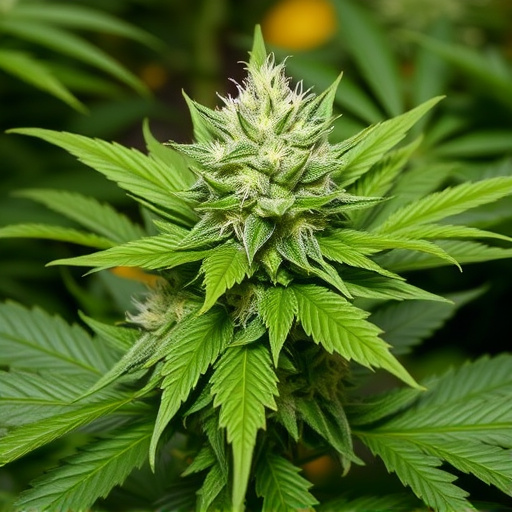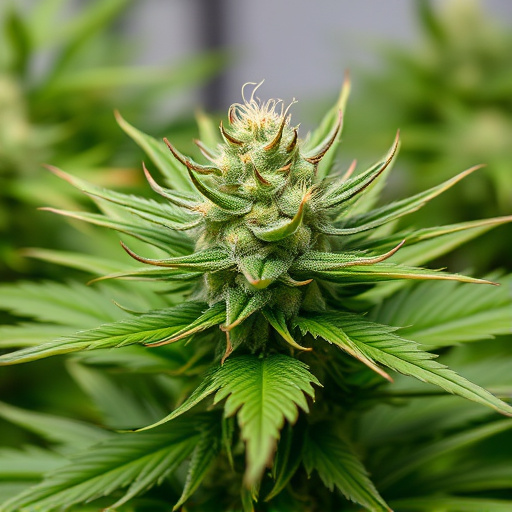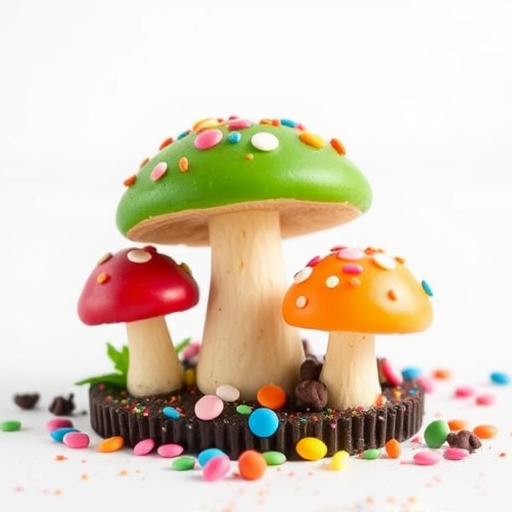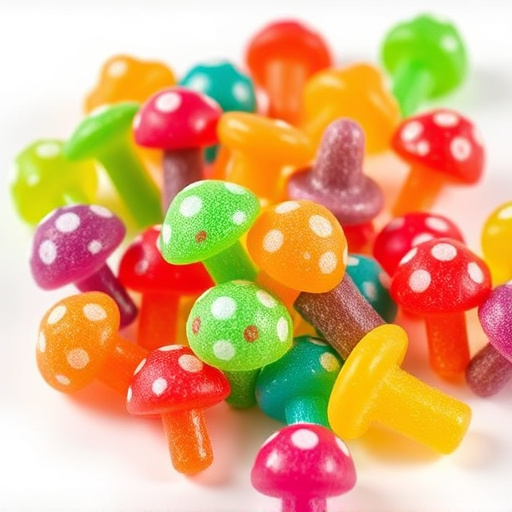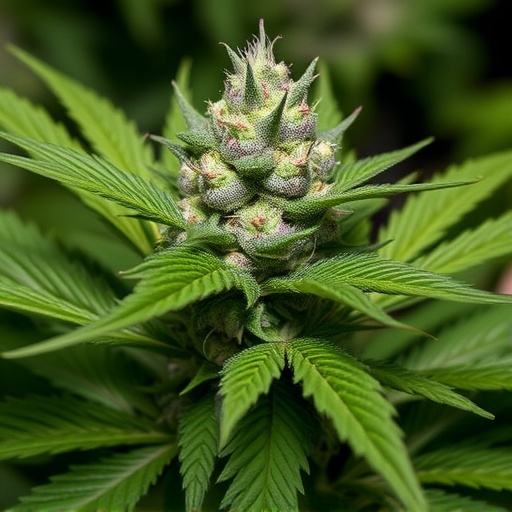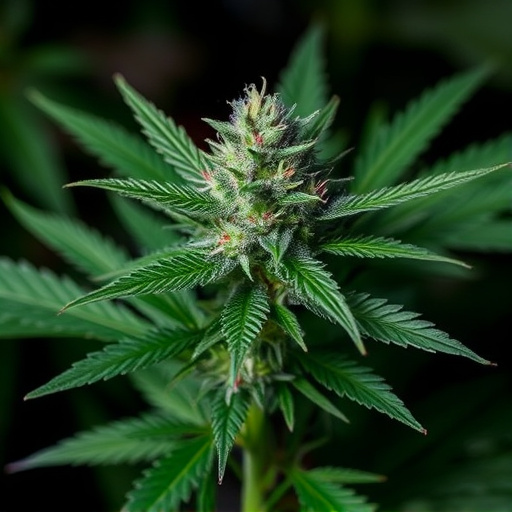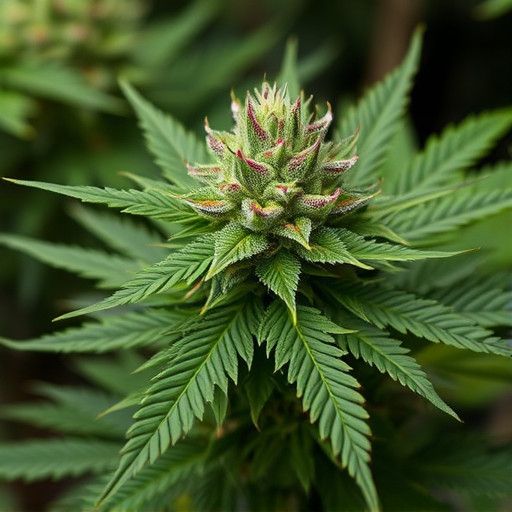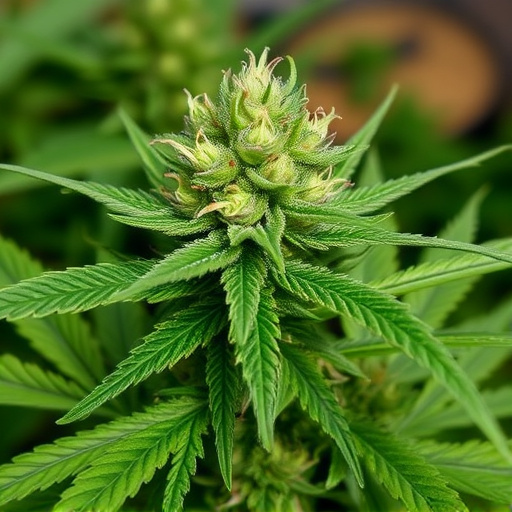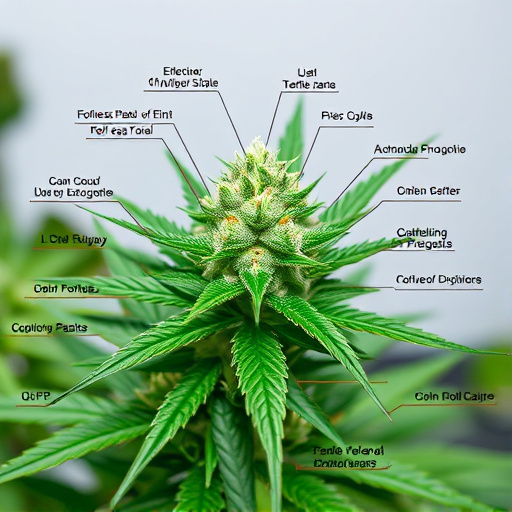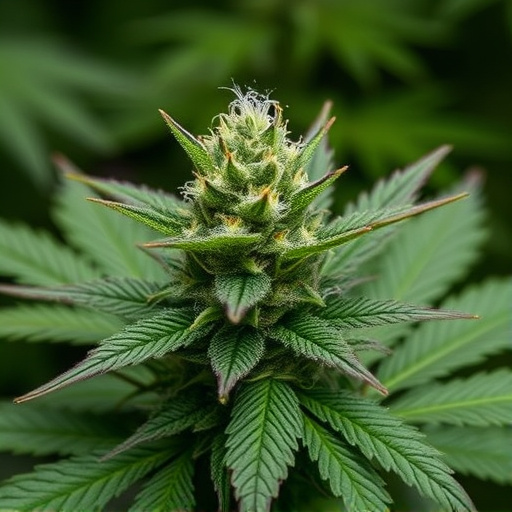Cannabis flower's impact on mood and stress is tied to its chemical composition, particularly THC and CBD, which interact with the endocannabinoid system. Consumption of specific strains affects neurotransmitters like dopamine and serotonin, leading to experiences ranging from euphoria and relaxation (THC) to anxiety counteraction (CBD). Sativa strains enhance focus, while Indica promotes relaxation, offering customizable mental health support based on individual preferences and desired outcomes. When considering cannabis for well-being, consulting healthcare providers is crucial due to highly individualized effects, especially with pre-existing conditions. Different consumption methods also impact the experience.
Cannabis flower, with its diverse compounds and intricate interaction with the endocannabinoid system, has garnered interest for its potential mood and stress-relieving effects. This article explores how different cannabis strains impact mental well-being, delving into the science behind its active ingredients. We’ll navigate the spectrum of cannabis strains and their unique effects on mood, while also considering side effects and important factors to ensure safe and effective use.
- Understanding Cannabis Compounds and Their Interaction with the Endocannabinoid System
- The Impact of Different Cannabis Strains on Mood and Stress Reduction
- Considerations and Potential Side Effects of Using Cannabis for Mental Well-being
Understanding Cannabis Compounds and Their Interaction with the Endocannabinoid System
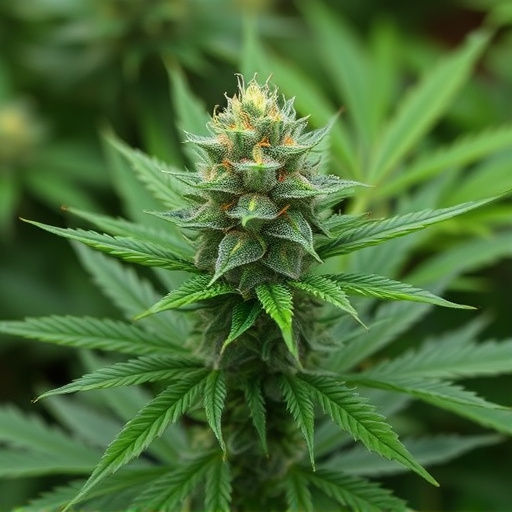
Cannabis flower’s impact on mood and stress is deeply intertwined with its chemical composition, particularly the compounds THC (tetrahydrocannabinol) and CBD (cannabidiol). These compounds interact with the endocannabinoid system (ECS), a complex network of receptors located throughout the body that plays a pivotal role in regulating various physiological processes, including mood, memory, and stress response.
When cannabis strains with specific ratios of THC and CBD are consumed, they bind to ECS receptors, influencing neurotransmitters like dopamine and serotonin. THC is known for its psychoactive effects, evoking feelings of euphoria and relaxation, which can alleviate temporary stress and enhance mood. Conversely, CBD doesn’t produce a “high” but instead interacts with the ECS in ways that may counteract anxiety and stress responses, potentially offering therapeutic benefits for mental health without the intoxicating effects of THC. This interaction highlights the nuanced relationship between cannabis strains and their effects on the mind, depending on the individual’s tolerance, preferences, and desired outcomes.
The Impact of Different Cannabis Strains on Mood and Stress Reduction

Cannabis flowers offer a diverse range of experiences, largely depending on the specific strains. Sativa strains, known for their invigorating and uplifting effects, can enhance focus and creativity while reducing anxiety, making them popular choices for daytime use or activities requiring mental clarity. On the other hand, Indica strains tend to have more sedative properties, promoting relaxation and soothing stress. These characteristics make Indicas ideal for unwinding after a long day or aiding in sleep.
The effects of cannabis strains on mood and stress reduction are multifaceted. Some strains may provide a cerebral high, stimulating conversation and enhancing social interactions, while others offer a body-focused experience that eases physical tension and promotes deep relaxation. Terpene profiles also play a significant role, with compounds like limonene boosting mood and linalool known for its calming properties. Exploring different cannabis strains allows individuals to tailor their experience based on personal preferences and desired outcomes, be it energizing, calming, or a balanced blend of both.
Considerations and Potential Side Effects of Using Cannabis for Mental Well-being
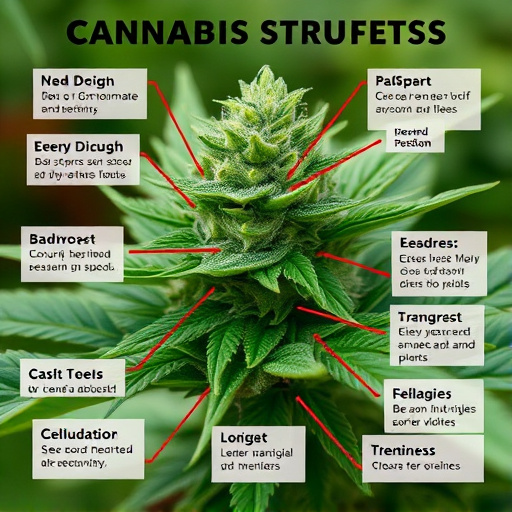
When considering cannabis for mental well-being, it’s crucial to approach its use with caution and an awareness of potential side effects. The impact of cannabis strains and their varying effects on mood and stress is complex and highly individual. While some people may find relief and a sense of calm from specific cannabis strains, others might experience heightened anxiety or paranoia. The right strain for one person may not be suitable for another, as different cannabinoids and terpenes can evoke diverse responses.
It’s important to remember that cannabis should never be considered a universal solution for stress or mood disorders without professional guidance. It is essential to consult with healthcare providers who can offer personalized advice, especially when dealing with pre-existing mental health conditions. Additionally, the method of consumption plays a role; smoking may deliver faster but less controlled effects, while edible forms can lead to more intense and unpredictable outcomes due to the delay in absorption.
Cannabis flower’s effect on mood and stress reduction is a complex interplay between its compounds and the endocannabinoid system. Understanding these interactions has led to insights into how different cannabis strains can be leveraged for mental well-being. However, it’s crucial to consider potential side effects and choose strains based on individual needs and tolerances. Further research is essential to unlock the full potential of cannabis as a tool for managing mood and stress in diverse populations.

